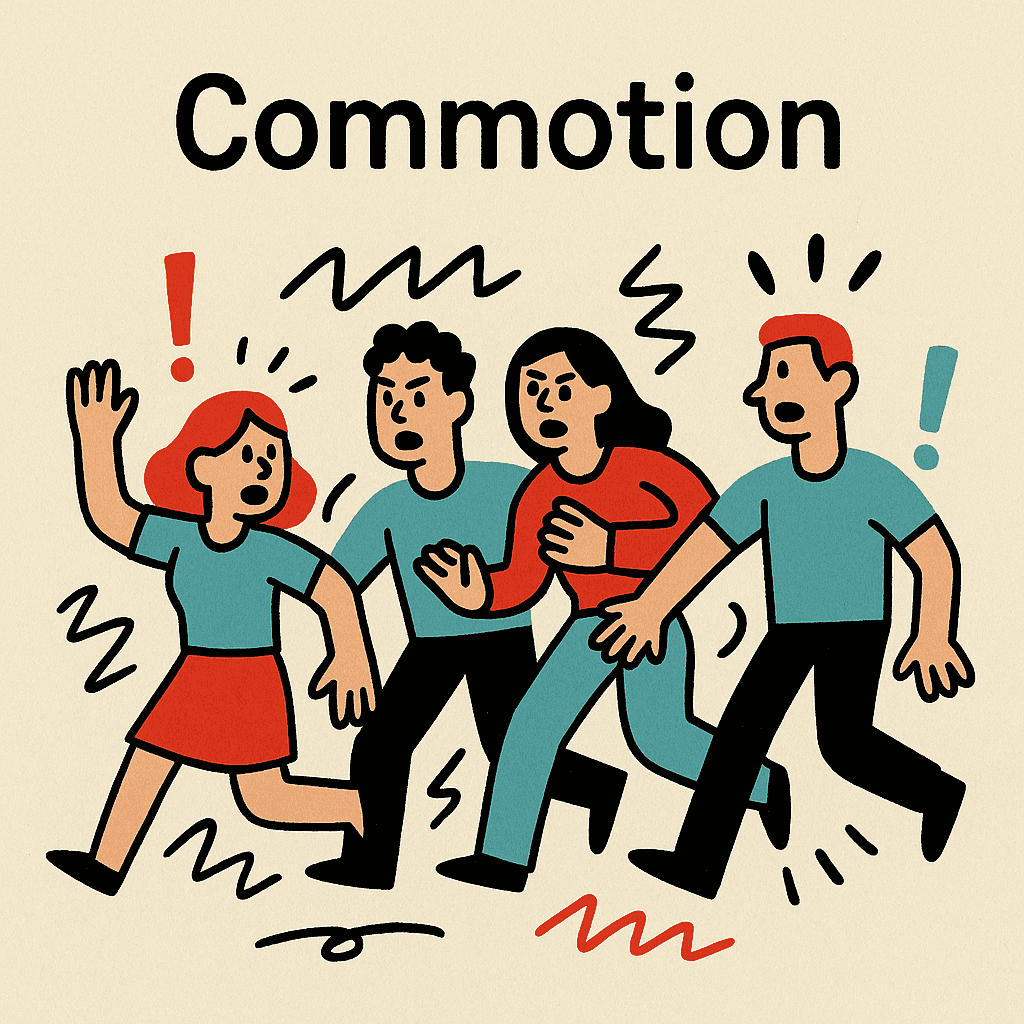Meaning
- Commotion is a noun that refers to a state of noisy confusion, disturbance, or uproar.
- It usually describes a sudden burst of noise and activity that disrupts calmness.
Grammar and Usage
-
Part of speech: Noun
-
Common structures:
- “a commotion in/at + place” (disturbance happening somewhere)
- “cause a commotion” (make a disturbance)
- “amid the commotion” (during the noisy confusion)
Common Phrases
- Cause a commotion – create a noisy disturbance.
- Amid the commotion – during the chaos or uproar.
- Stir up a commotion – provoke or trigger a disturbance.
- Public commotion – noisy disturbance in a public area.
Collocations
- Adjectives + commotion: sudden commotion, great commotion, loud commotion, public commotion
- Verbs + commotion: cause commotion, create commotion, stir commotion, hear commotion
Examples
- There was a loud commotion outside the office.
- The children caused a commotion in the classroom.
- A sudden commotion in the crowd drew the police’s attention.
- She slipped away quietly amid the commotion.
- The commotion in the street lasted for several minutes.
- He entered the hall without causing a commotion.
- Reporters created a commotion around the celebrity.
- The teacher tried to calm the commotion in the room.
Synonyms or Related
- Uproar
- Chaos
- Turmoil
- Hubbub
- Disturbance
- Pandemonium
